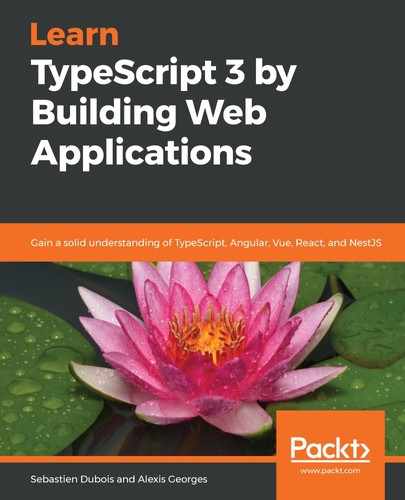LocalStorage and SessionStorage are two different mechanisms that are both part of modern web browsers. Through these, you can easily store key/value pairs in the user's web browser storage space. That space is limited in size, but you can normally store around 10 MB on desktops and around 5 MB on mobile devices; this will be more than enough for our small application.
LocalStorage and SessionStorage both expose the same APIs and capabilities, but differ in persistence. While LocalStorage survives page reloads, SessionStorage does not. Also, each browser session has a separate SessionStorage instance: if the browser tab or window is closed, then the data will be lost.
The data that you store is only accessible to the document origin, which is determined by the combination of a domain, subdomain, and port. This means that a web application hosted at a different origin should not be able to access the data.
The API is very simple to use:
// persisting: let key = 'Foo'; localStorage.setItem(key, 'Bar'); // retrieving let value = localStorage.getItem(key); // updating localStorage.setItem(key, 'Bar2'); // removing localStorage.removeItem(key); // removing everything localStorage.clear();
As you can see, the API is synchronous. The same is true for sessionStorage.
One drawback of these two APIs is that they can only store string values. This means that, if you have another type of data, then you need to convert them back and forth, for example, using JSON.stringify(data) and JSON.parse(jsonData).
You can find everything there is to know about these APIs here:
